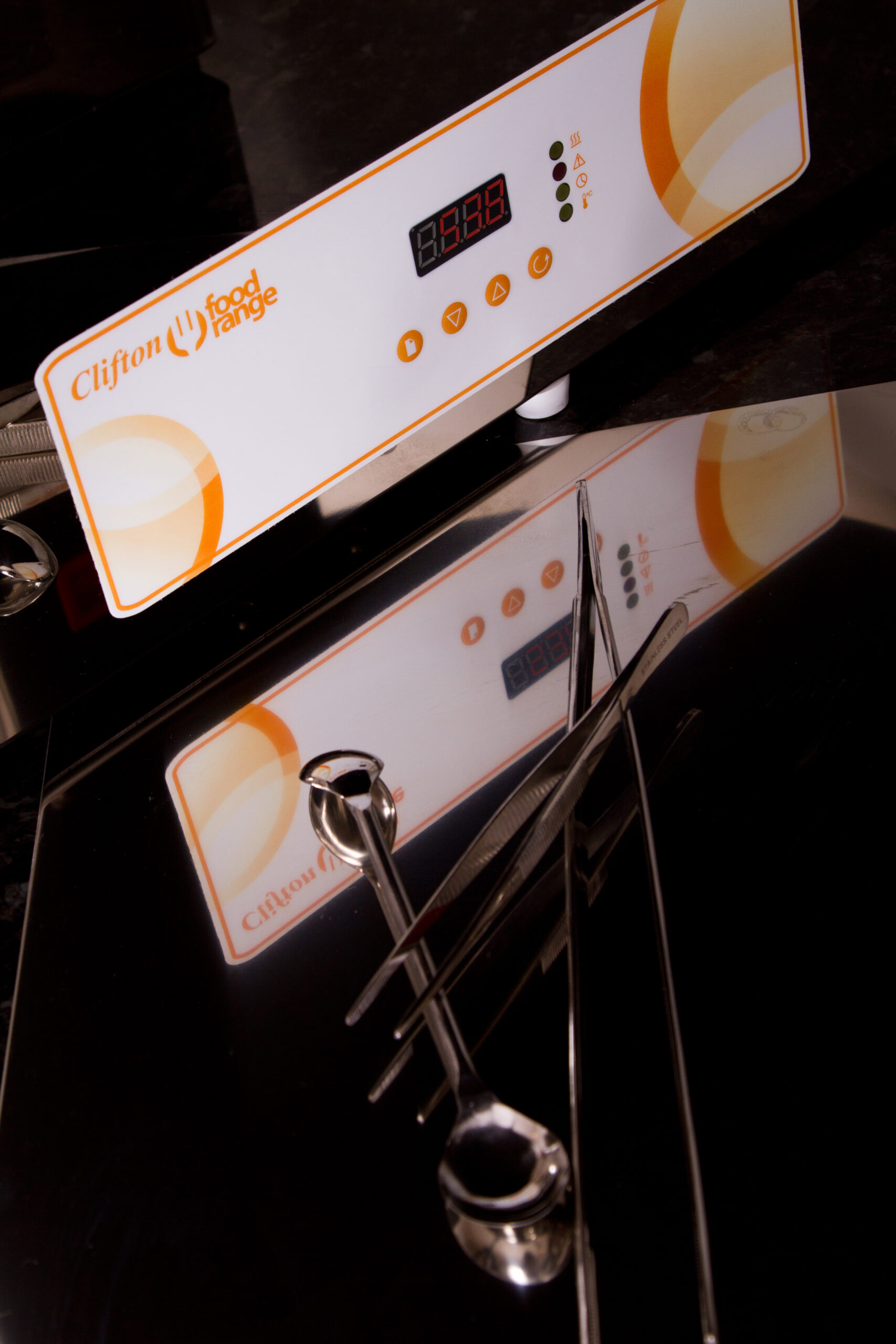Save Money With Water Baths
Sous vide can save time and money
Enhance profit
Reduce your costs
MINIMUM SHRINKAGE RESULTS IN GREATER YIELD
Most meats are cooked on the stove/on the hob in restaurant kitchens. During the cooking process, there’s an average of 20% shrinkage.
There is minimum shrinkage when cooking in a water bath therefore more is gained from the fillet i.e. greater yield.
Savings after using a smaller meat cut
| Variables | Figures |
|---|---|
| Average cost of 1 x 225g fillet steak | £10 |
| Average cost of 1 x 180g filled steak | £8 |
| Value of saving per fillet steak | £2 |
| Number of steaks served per day (2 services) | 30 |
| Value of saving from using a smaller fillet steak | |
| Per day : £60 | |
| Per week (6 days/week) : £360 | |
| Per year (52 weeks) : £18,720 |
All the above values are approximate and only to be used as a guide.
Cooking a 225g fillet steak could shrink when cooked on the hob and appear similar to a 180g steak.
Using a 180g steak in the first place and cooking in a water bath will result in a cost saving of approx 20% through minimum shrinkage.

CONSISTENCY LEADS TO LESS FOOD RETURNED
Because the cooking process is at low temperature and precisely controlled there is no danger of over-cooking a food item.
For example rare, medium rare steaks have a known cooking temperature/time combination so they can be cooked to perfection consistently.
The risk of a steak being returned from the customer and having to be replaced free of charge is virtually eliminated (unless it is overcooked at searing stage).
MISE EN PLACE – SAVING TIME WITH SLOW COOKING PROCESS
Chefs frequently cook food during the morning mise en place, meaning the food is already cooked, has been chilled and stored by the time service begins.
At service time the steak is removed from the fridge and regenerated and seared to order.
Only what is ordered table by table is regenerated and the remainder stays chilled in the fridge until next service, this reduces waste and saves money.
